Foods That Should Not Be Refrigerated
Not all foods enjoy a chilly retreat in your refrigerator. In fact, some of your favorite kitchen staples can lose their flavor, texture, and even nutritional value when subjected to cold temperatures.

Picture it like this: forcing certain foods into the fridge is like making a beach lover live in the Arctic. Not exactly ideal, right? By understanding the best storage conditions, you can make sure your food stays fresh, flavorful, and ready to deliver its best taste when you need it most. So, let’s dive in and talk about ten foods that should never, ever be exiled to the fridge.
1. Tomatoes

Tomatoes and refrigerators go together about as well as oil and water. Cold temperatures do a number on these vibrant fruits (yes, they’re fruits!) by stripping them of their natural sweetness and turning them into bland, mealy shadows of their former selves. The enzymes responsible for that rich, sun-kissed flavor get disrupted, leaving you with a sad, lifeless tomato.
Studies from the University of Florida and the National Academy of Sciences have shown that refrigeration alters the volatile compounds in tomatoes responsible for their signature taste.
Worse still, refrigeration hinders the ripening process, kind of like hitting the pause button on their journey to peak deliciousness. Plus, tomatoes pack a nutritional punch with antioxidants like lycopene, but the fridge can drain those benefits away.
A study published in Postharvest Biology and Technology found that tomatoes stored at 41°F (5°C) lost a significant percentage of their volatile compounds responsible for aroma and flavor.
The solution? Store them on the counter, stem-side down, to maintain freshness. If you absolutely must refrigerate ripe ones, let them return to room temperature before eating; trust me, your taste buds will thank you.
2. Onions

Onions and refrigerators are like two people stuck in a bad relationship; they just don’t work well together. The humidity in the fridge makes onions mushy and prone to mold, while the cold converts their starches into sugars, making them oddly sweet.
A 2016 study by the USDA confirmed that storing onions in a humid environment like a refrigerator accelerates mold growth and spoilage.
And let’s not forget their ability to absorb odors like a sponge; unless you enjoy onion-infused milk or onion-scented cake, keep them in a cool, dry, well-ventilated place instead.
Whole onions will stay crisp and flavorful outside the fridge. According to research from the University of California, Davis, cut onions should be sealed in an airtight container to prevent odor absorption and maintain freshness.
3. Garlic

Garlic is a kitchen MVP, but refrigerating it is like benching your star player. Cold temperatures encourage sprouting, making those cloves taste bitter and less potent.
Worse still, garlic bulbs stored in the fridge tend to accumulate moisture, turning them into a moldy mess. Keep your garlic somewhere cool, dry, and well-ventilated—think pantry or countertop.
Research published in the Journal of Food Science states that refrigeration increases moisture in garlic bulbs, promoting premature sprouting and mold development. Another study from the American Chemical Society found that garlic’s sulfur compounds, responsible for its health benefits, diminish when refrigerated.
If you’ve got peeled cloves, store them in an airtight container in the fridge, but for whole bulbs, let them breathe at room temperature to retain their robust, aromatic charm.
Also Read: Seeds You Should Never Eat, What to Eat Instead
4. Potatoes
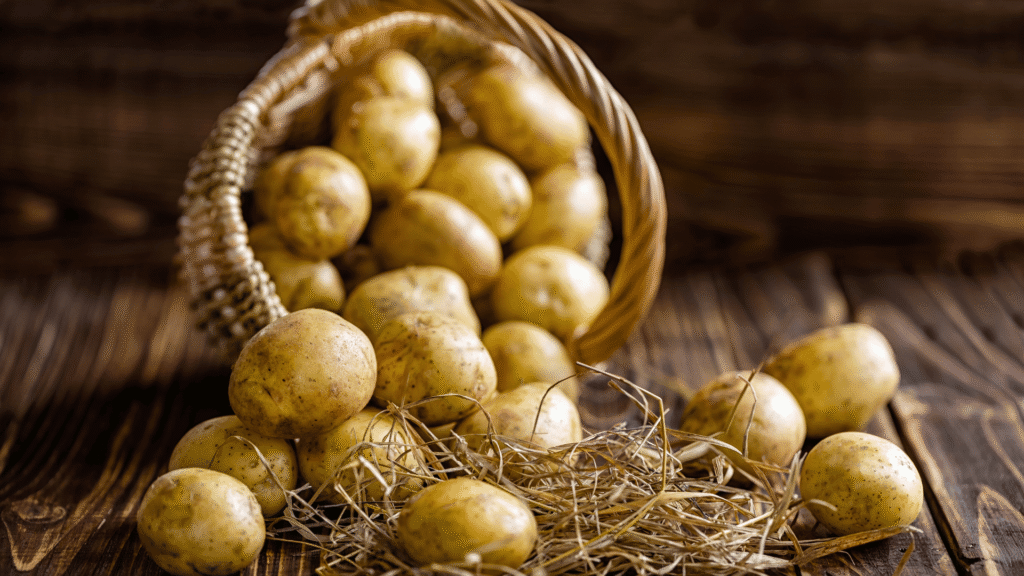
Tossing potatoes into the fridge is a culinary crime. Cold temperatures turn potato starches into sugar, which not only messes with the taste but also affects the texture, giving them a grainy or gritty feel.
Research published in Food Chemistry confirms that refrigeration accelerates acrylamide chemical reaction, making potatoes potentially harmful when cooked.
Worse yet, refrigerated potatoes are more likely to develop acrylamide, a potentially harmful chemical that forms when cold-stored potatoes are cooked at high temperatures. Instead, store them in a cool, dark, dry place, think pantry, basement, or a paper bag, to keep them fresh, firm, and delicious.
5. Avocados
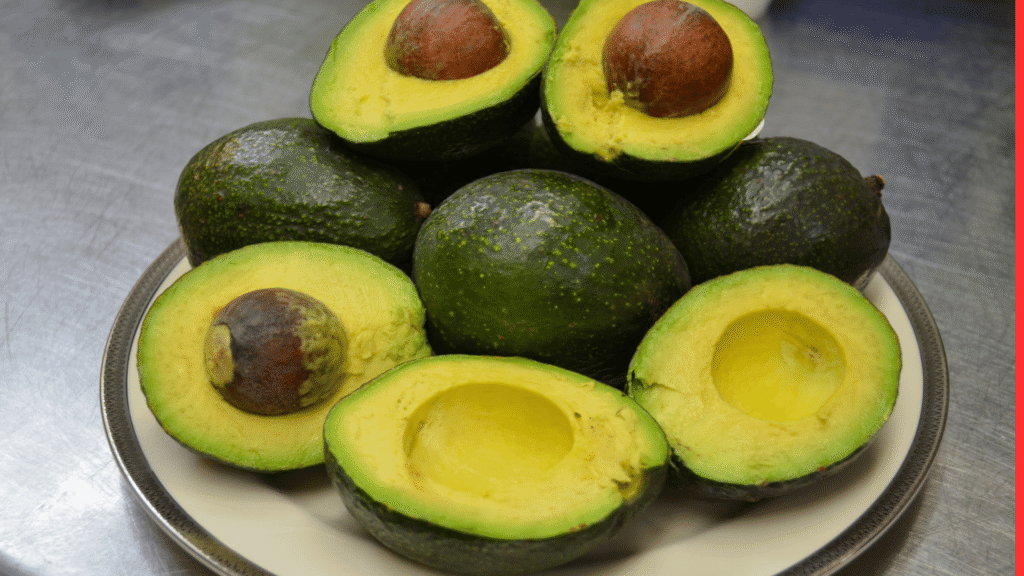
Avocados are like that one friend who takes their time getting ready but shows up looking amazing. They need time at room temperature to ripen properly. Pop them in the fridge too soon, and you’ll slow down the ripening process, leaving you with a rock-hard, flavorless fruit.
According to the Journal of Agricultural and Food Chemistry, cold storage disrupts the ripening process of avocado by slowing down ethylene production.
A study conducted at the University of California, Riverside, confirms that room temperature storage preserves the creamy texture and rich taste of avocados. If they’re already ripe and you’re not ready to eat them yet, the fridge can temporarily slow further ripening. Just don’t forget about them, nobody likes a brown, overripe avocado surprise.
6. Bananas
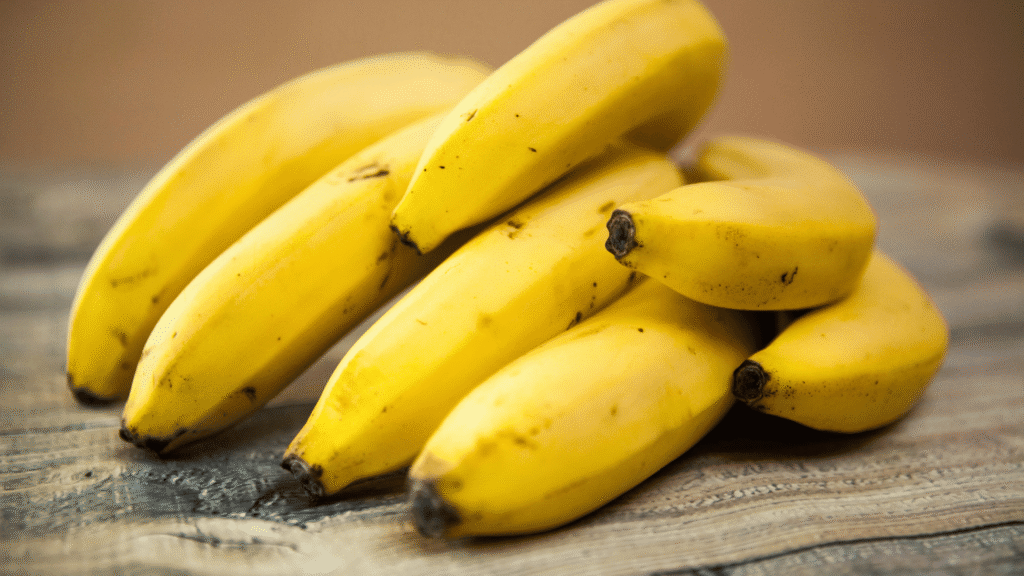
Bananas and cold weather don’t mix. The fridge halts their ripening process, leaving you with a dull, underwhelming fruit. Worse, the cold causes their skin to turn an unappetizing black, making them look overripe when they’re actually not.
Research from the Journal of Experimental Botany found that cold exposure inhibits the production of amylase and pectinase, the enzymes responsible for converting starch to sugar and softening banana.
Instead, keep them at room temperature where they can ripen naturally into the sweet, creamy goodness we all love. If you need to slow the ripening process, separate them from other fruits or wrap the stems in plastic wrap to minimize ethylene gas exposure.
Also Read: 13 Indoor Plants That are Beneficial for Your Health
7. Bread
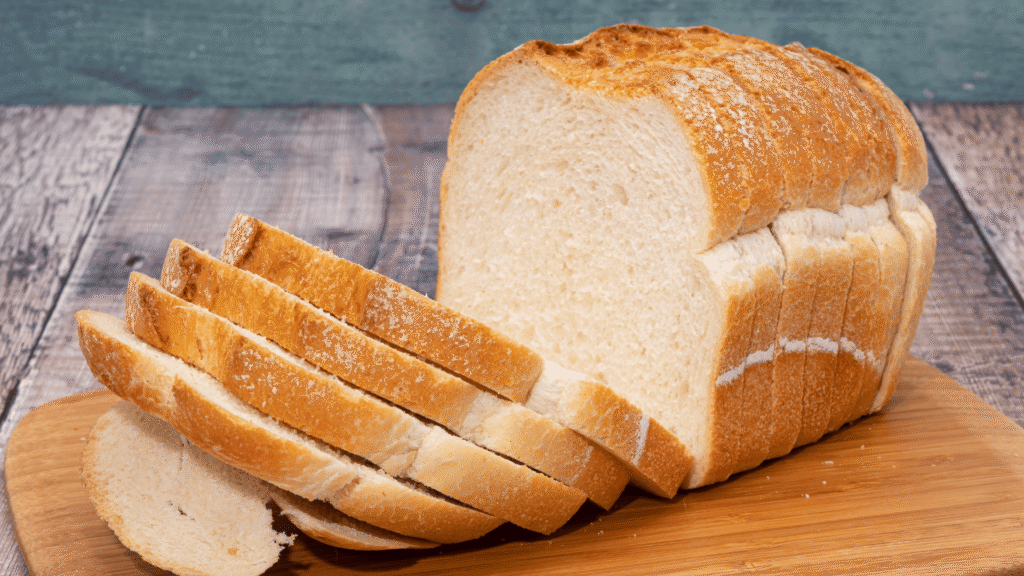
Think refrigerating bread keeps it fresh? Think again. Cold temperatures speed up the staling process, making your bread tough, dry, and utterly unappetizing. The fridge also introduces humidity, turning your loaf into a soggy mess.
A 2014 study from the Institute of Food Technologists found that storing bread in the fridge causes it to become hard and dry six times faster than room temperature storage. The study also noted that refrigeration alters the molecular structure of starch, making bread crumbly.
And if that wasn’t bad enough, bread is like a flavor magnet, absorbing all the weird odors hanging around in your fridge. The fix? Store bread at room temperature and, if you must keep it longer, freeze it instead, freezing preserves its texture without sacrificing taste.
8. Honey
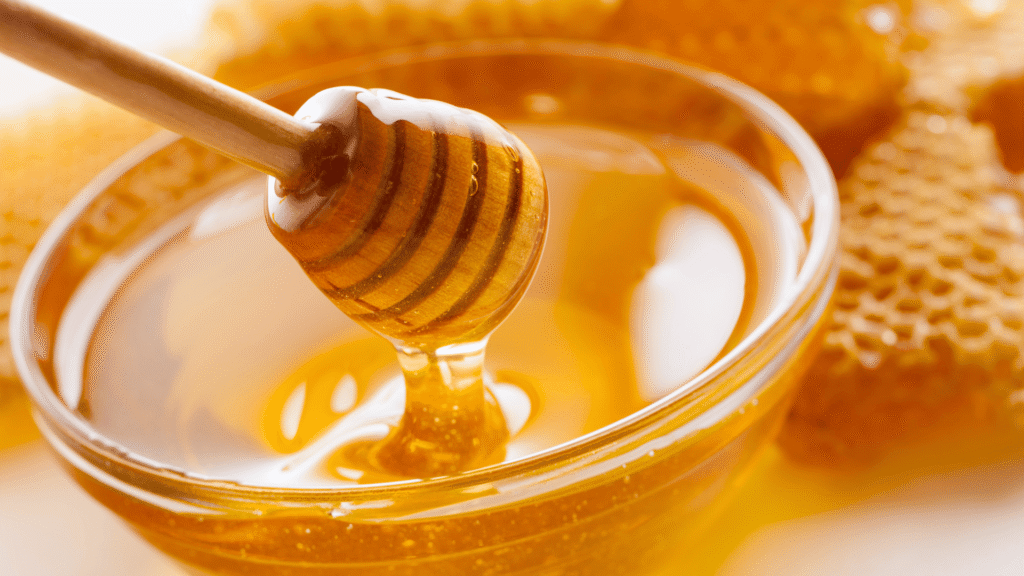
Honey is one of nature’s ultimate preservatives. It never spoils, so why would you put it in the fridge? Cold temperatures speed up crystallization, turning your smooth, golden honey into a gritty, hard-to-use mess.
Studies in Microbial Ecology in Health and Disease found out that refrigeration accelerates crystallization, making honey thick and difficult to pour. A study by the National Honey Board found that honey stored at room temperature maintains its smooth consistency and preserves its natural enzymes
Instead, store it at room temperature in a tightly sealed container. Fun fact: archaeologists have found jars of honey in ancient Egyptian tombs that are still perfectly edible, talk about a natural wonder!
9. Uncut Melons
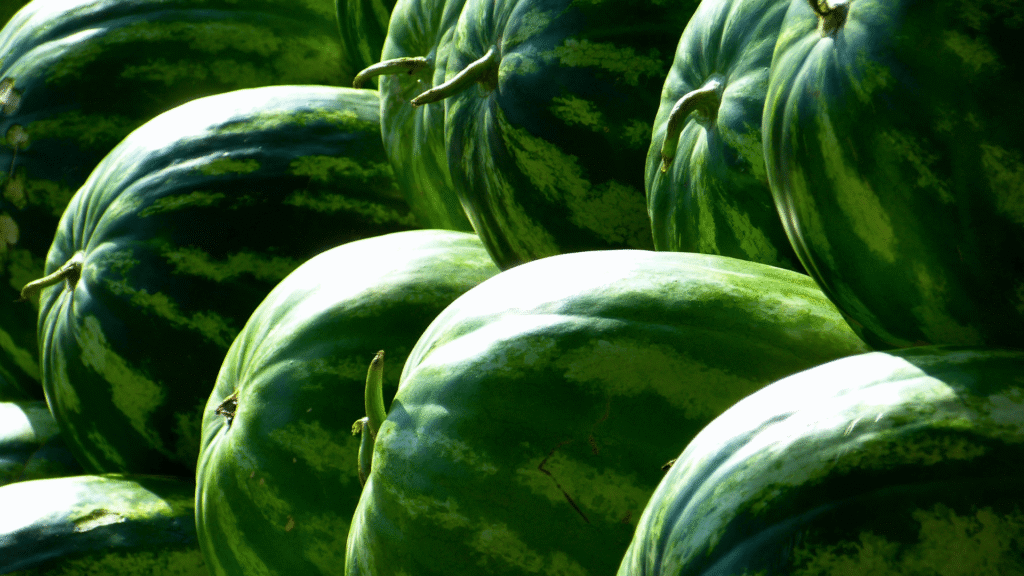
Whole melons don’t need the fridge until you cut them. Cold temperatures can dull their natural sugars, making them taste less sweet and juicy. Room temperature storage allows them to ripen properly, ensuring maximum flavor and nutrition.
A USDA study found that refrigeration before cutting reduces the levels of antioxidants like beta-carotene in melons. According to research published in the Journal of Food Science, whole melons stored at room temperature have 30% higher antioxidant levels than those kept in the fridge.
Once you’ve sliced into one, then yes, pop the leftovers into the fridge to keep them fresh, but always in an airtight container to prevent them from absorbing any unwanted fridge smells.
10. Olive Oil

Refrigerating olive oil does nothing but turn it into a cloudy, semi-solid mess. While this doesn’t spoil the oil, it makes it inconvenient to use and can affect the consistency.
Research from the Journal of Agricultural and Food Chemistry shows that condensation in refrigerated olive oil can lead to moisture accumulation, promoting microbial growth.
Cold temperatures also introduce condensation, which can lead to bacterial growth if water gets mixed in. Instead, store olive oil in a cool, dark place like a pantry to keep it fresh, fragrant, and ready to drizzle over your favorite dishes.
Conclusion
As you can see, the fridge isn’t always your food’s best friend. Understanding the ideal storage conditions for different foods ensures they retain their flavor, texture, and nutritional value. From keeping tomatoes on the counter to storing honey in the pantry, proper storage enhances the quality of what you eat. So, be kind to your food, store it wisely, and let your taste buds reap the delicious rewards!




